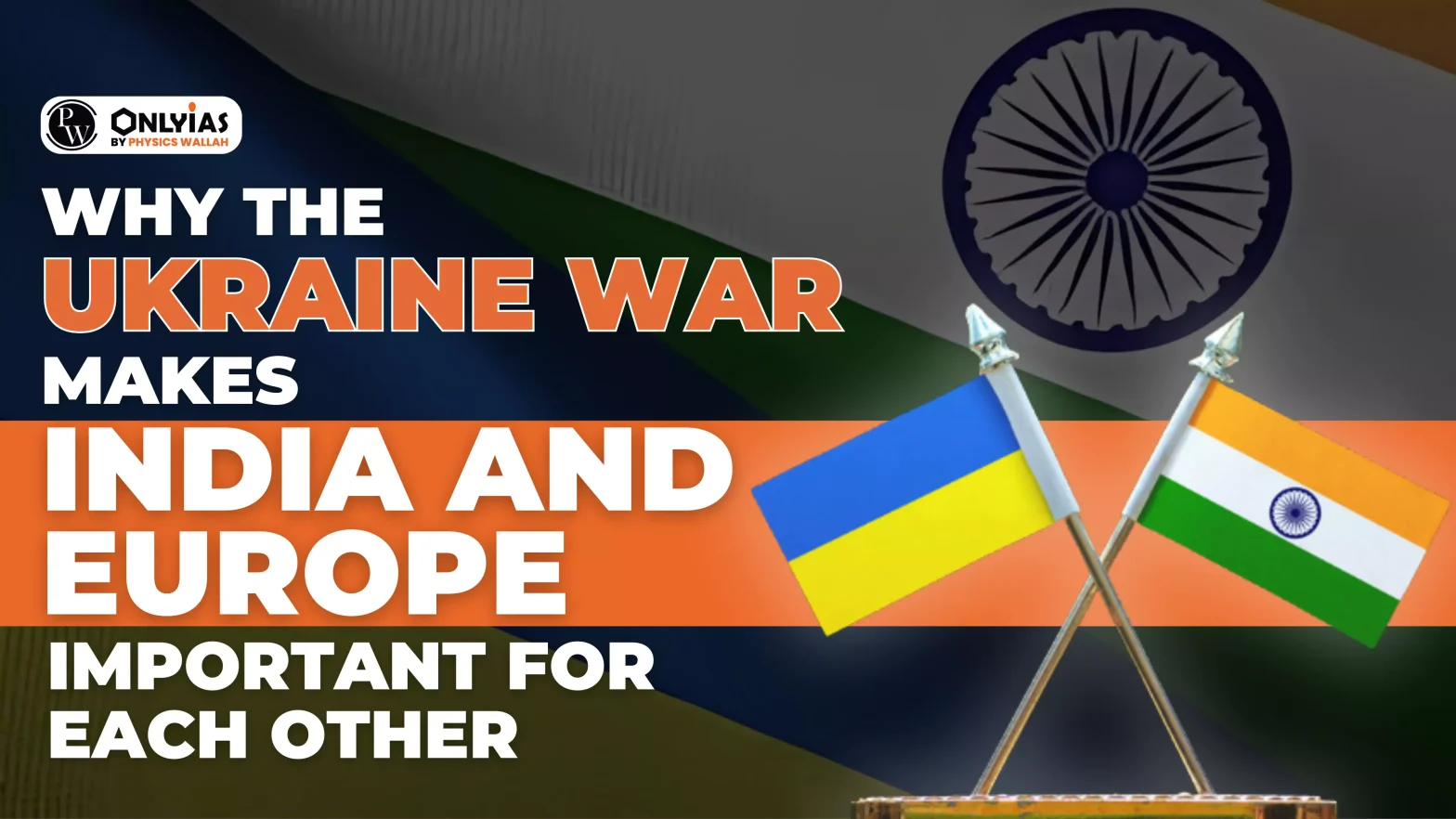Prime Minister Narendra Modi‘s likely visit to Ukraine next month should mark a reconfiguration of India’s approach to European security.
| Relevancy for Prelims: Ukraine War, Mercantilism, NATO, etc.
Relevancy for Mains: Challenges and opportunities for India in re-engaging with Europe etc. |
Ukraine War Makes India And Europe Important For Each Other
- Although political rivalries among European powers have shaped the evolution of modern India and Asia, European geopolitics has fallen off India’s strategic radar in recent decades.
- The war in Ukraine, however, has put the question of Europe right at the top of India’s international agenda.
- India’s public discourse has treated the Ukraine question either as a “pressure point” from the West or as a moment for solidarity with Russia.
- Delhi should instead see the war in Ukraine as an imperative for long overdue re-engagement with European peace and security.
Enroll now for UPSC Online Course
- To be sure, India has in the last few years stepped up its political and diplomatic engagement with Europe, a leading economic partner, and an important source of technology – civilian and military.
- It now needs to lend a strategic character to it.
- The last decade and more have seen Delhi recalibrate its strategy to Asia and its waters – the Indo-Pacific – as well as reorganise its approach to the Middle East.
- But Europe has remained outside the effort to redraw India’s mental maps.
- Since the end of the Cold War, Delhi had little reason to think of a peaceful and integrating Europe in geopolitical terms.
- India’s “non-strategic” thinking on Europe was reinforced by Europe’s “mercantilism”.
- Although Europe proclaimed the ambition to be a “geopolitical actor”, it could not shake off its strong bias towards trade and commerce.
- Both the European and Indian complacency have been shaken to the core by the Russian invasion of Ukraine.
- Many in the US want Europe to take greater responsibility for defending their region against Russia and relieve America to focus on Asia.
- Europe’s problem of dealing with a changing America is complicated by deep internal divisions on how to deal with the Russian question.
- Two historically neutral countries – Finland and Sweden – have joined NATO amid their growing sense of threat from Russia.
- But two NATO members – Hungary and Turkey-have sought to pursue their own paths to dealing with the war in Ukraine.
- Many European political parties on both the left and right are in favour of a compromise with Moscow.
- To make matters worse, Europe is torn between criticising China for its material support of the Russian invasion of Ukraine and pleading with Beijing to restrain Moscow.
- Put simply, Europe is facing hard geopolitical dilemmas.
- Answers to Europe’s problem lie in building its own defence capacity; but that can only be done over the longer term, assuming there is unity and seriousness of purpose.
- The return of war to Europe has created multiple economic challenges for India.
- It has also complicated India’s security challenges.
- If its relationship with Russia has come under the political scanner in the West, Beijing’s growing ties with Moscow and its strategic forays into Europe have introduced new uncertainty into India’s security calculus.
- Even more important, Delhi’s peace diplomacy in Ukraine will be a crucial step towards India’s strategic re-engagement with European security.
- It marks an end to the long Indo-European geopolitical holiday.
- In the colonial era, the Indian princes sought to exploit European rivalry in the Subcontinent to secure their freedom of action.
- As Great Britain consolidated its position, sections of the Indian nationalists worked with European powers – France, Germany, and Russia – to defeat British rule.
- Imperial Germany, for example, supported the formation of the first provisional government of India in Kabul in 1915.
- Britain relied on Indian troops to defeat rival powers in the First and
- Second World Wars. One million Indian soldiers participated in the First and two million in the Second.
- The Cold War and the post-Cold War era saw the steady diminution of India’s strategic engagement with Europe.
- The conflict in Europe is unlikely to end with a ceasefire in Ukraine.
- It will be quite a while until a new European security order is constructed.
- Asian powers like China, Japan and South Korea are now actively involved with European security.
- India has even higher stakes in European geopolitics.
Check Out UPSC CSE Books From PW Store
Conclusion
The Ukraine war underscores India’s need for a strategic re-engagement with Europe, shifting from historical complacency to active involvement in shaping a new European security order.
![]() 1 Aug 2024
1 Aug 2024
